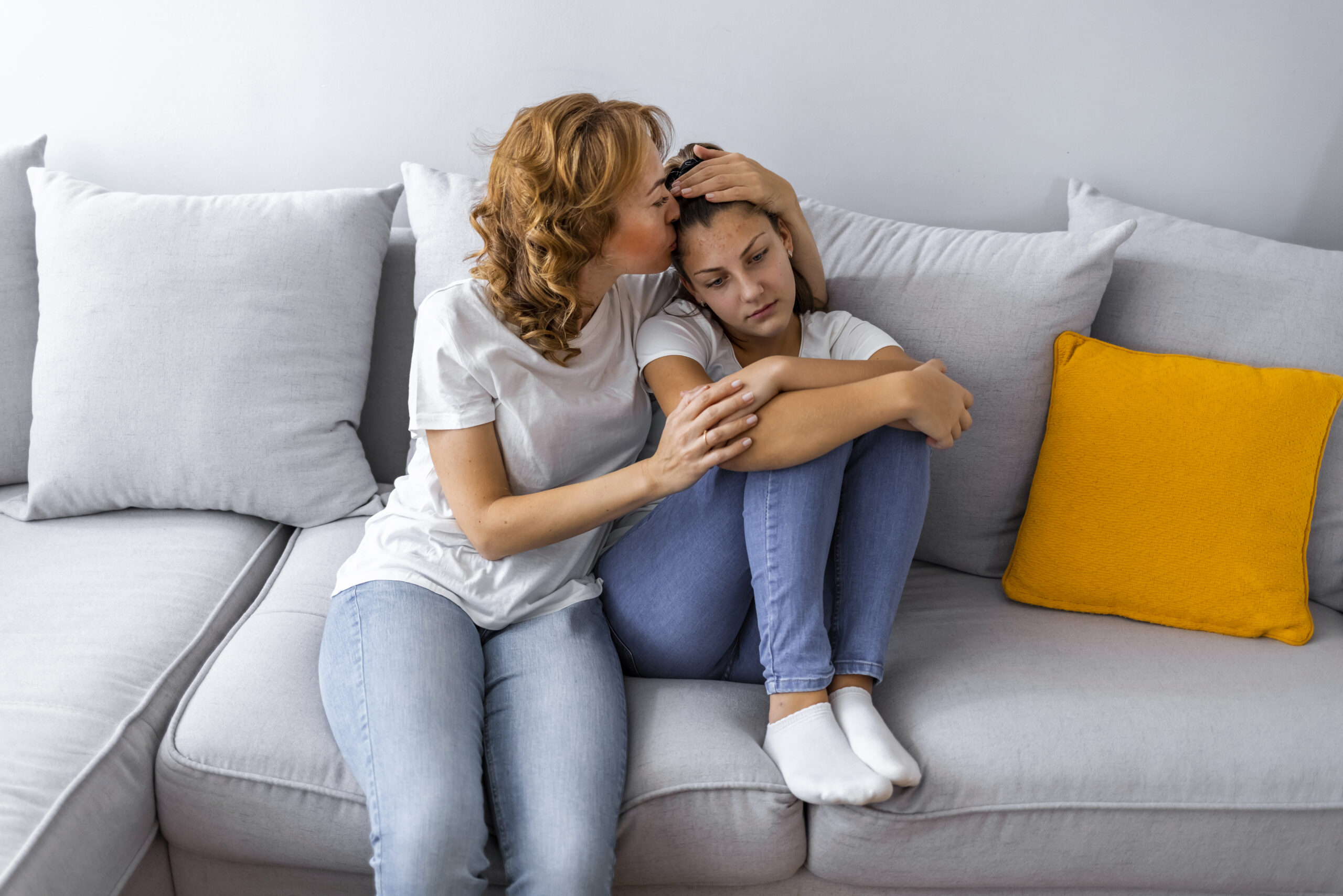How to Properly Communicate with Your Parent

What is communication?
Communication includes both verbal language (words) and non-verbal language (e.g., facial expressions, body movements and tone of voice). In communication, there are always senders and receivers. The senders are the people who speak, and the receivers are the people who listen. In a conversation, each person takes turns being the sender and the receiver.
Why is it important to communicate well?
Communication is important in all areas of your life because it allows you to tell other people what you are experiencing, what you are feeling and what you need. So, communication can help you make yourself understood, resolve conflicts and create stronger bonds with those around you.
What to do before starting a conversation?
Before you start talking, you need to choose the right time to do so. Then, it’s important to ensure that you and your parent are available and emotionally and physically ready to have a conversation (e.g., not too tired or very angry). Sometimes it can be helpful to schedule a time with your parent ahead of time to make sure you’re both ready for the discussion.
Next, you need to choose the right place. A quiet place is best (e.g., on a park bench), away from distractions (e.g., away from the television). This will allow both of you to be more attentive and receptive, helping to fully engage in the conversation.
How to be a good sender (speaker)?
- Look them in the eye if you feel comfortable doing so.
- Speak to them slowly and calmly.
- Occasionally ask them if they have any questions.
- Use the word “I” (e.g., “I feel sad when I don’t feel heard”).
- Avoid the words “always” and “never” (e.g., instead of saying “You NEVER let me see my friends,” say, “I wish I could see my friends more often”).
- Show your parent that you understand their point of view too. This will increase the chances that they will be open to your perspective.
- Prepare for the conversation and have solutions already in mind.
- Try to find a compromise.
- Negotiate by offering something in return (e.g., offer to clean your room before going to play at a friend’s house).
How to be a good receiver (listener)?
When your parent talks to you, it’s important to do your best to :
- Not interrupt
- Be patient and wait until they are finished before speaking
- Show that you are listening (e.g., nodding your head or saying, “Mm-hmm! “, “Ah! “, “Oh! “)
- Remain calm in case of a disagreement
When your parent is done talking, it’s important to :
- Verify that you have understood correctly. To do this, you can rephrase what you understood in your own words, or you can ask questions about what they have just said.
- If necessary, you can ask them to explain further.
The answers are at the bottom of the page, after the references.
This content was developed at the Université du Québec en Outaouais by the Research and action laboratory for people with mental health problems and their loved ones (LaPProche) with funding from the Fonds des services aux collectivités (FSC2018-013) of the Ministère de l’Enseignement Supérieur and in collaboration with CAP santé mentale.
References
Villatte, A., Piché, G., & Habib, R. (2020). Quand ton parent a un trouble mental. Conseils et témoignages de jeunes. Université du Québec en Outaouais : Laboratoire LaPProche, 52 pages.
Piché, G., Villatte, A., Habib, R., & Vetri, K. (2019). Programme FAMILLE+. Manuel de l’enfant [document inédit].Université du Québec en Outaouais : Laboratoire de recherche et d’actions pour les personnes ayant des problèmes de santé mentale et leurs proches (LaPProche).
Piché, G., Vetri, K., Villatte, A., & Habib, R. (2021). Le Trésor de l’Île Rouge [document inédit]. Université du Québec en Outaouais : Laboratoire de recherche et d’actions pour les personnes ayant des problèmes de santé mentale et leurs proches (LaPProche).
Goulet, A. et l’Équipe Naître et grandir .(2018). Établir une bonne communication avec mon enfant. Naître et grandir. https://naitreetgrandir.com/fr/etape/3-5-ans/vie-famille/fiche.aspx?doc=ik-naitre-grandir-communication-parent-enfant
L’équipe d’Alloprof Parents. (2021). Comment établir une communication efficace avec votre enfant? Alloprof. https://www.alloprof.qc.ca/fr/parents/articles/saines-habitudes-vie-activites-pedagogiques/communication-efficace-enfant-k1429
Leroux-Boudreault, A. et l’Équipe Naître et grandir (2021). Comment communiquer avec son enfant. Naître et grandir. https://naitreetgrandir.com/fr/etape/5-8-ans/vie-famille/fiche.aspx?doc=parler-communiquer-enfant
Dietz, L. J., Weinberg, R., Mufson, L., & Weinberg, R. B. (2018). Family-based interpersonal psychotherapy for depressed preadolescents. Oxford University Press.
TRUE or FALSE answers :
- TRUE. Communication includes both verbal language (words) and non-verbal language (e.g., facial expressions, body movements and tone of voice).
- FALSE. Communication can help you resolve conflicts.
- FALSE. Ideally, you should find a quiet place, away from distractions.
- TRUE. In communication, there are senders and receivers. The senders are the people who speak, and the receivers are the people who listen.
- TRUE. To communicate well, it is important to avoid using the words “always” and “never.”
- FALSE. When talking to your parent, it is important to show that you understand their point of view as well. This will allow both of you to reach compromises.
To cite this document, please provide the following reference: LaPProche Laboratory. (2021). How to Properly Communicate with Your Parent. Université du Québec en Outaouais.
© LaPProche 2021| lapproche.uqo.ca
All rights reserved.
Any reproduction in whole or in part by any means whatsoever is prohibited without the written permission of LaPProche.





